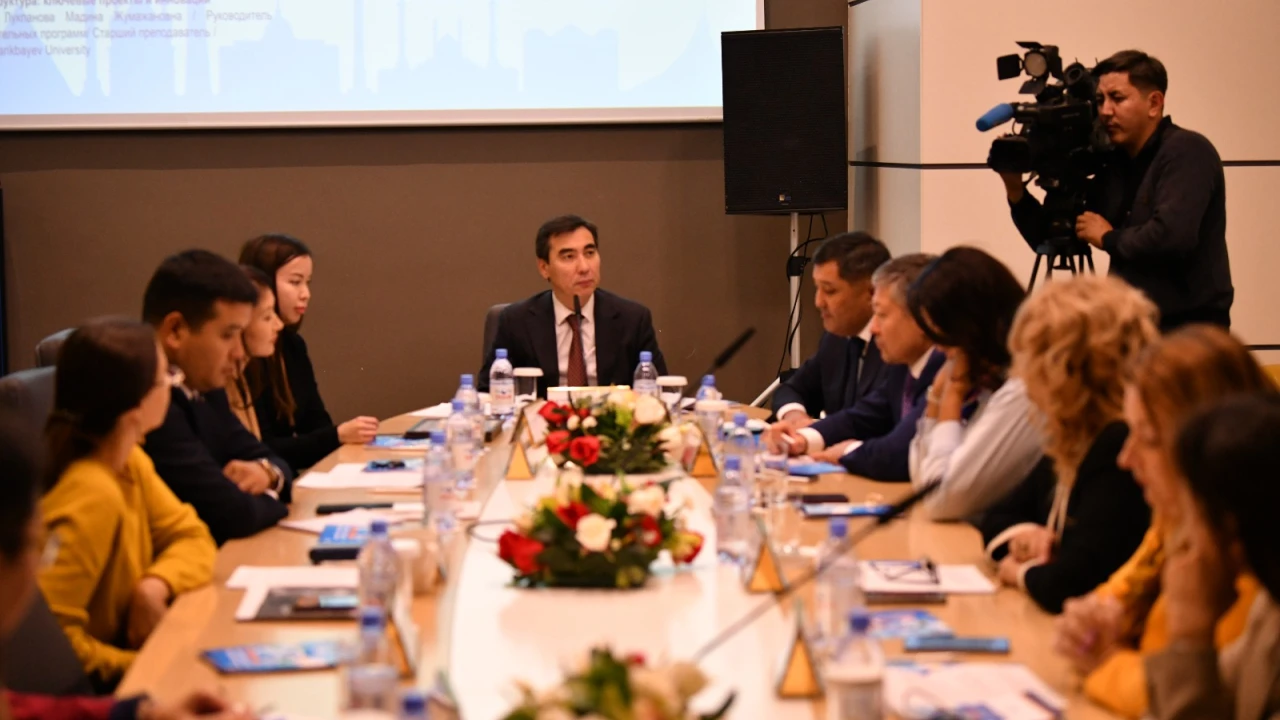
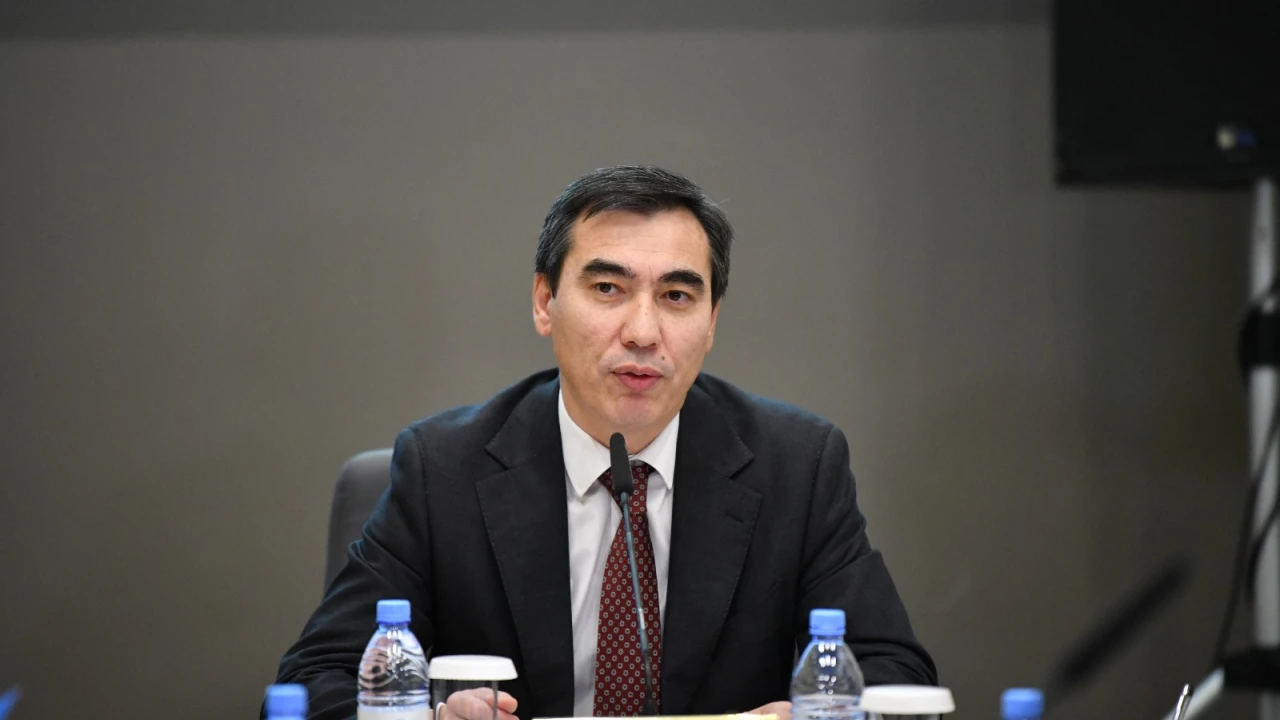
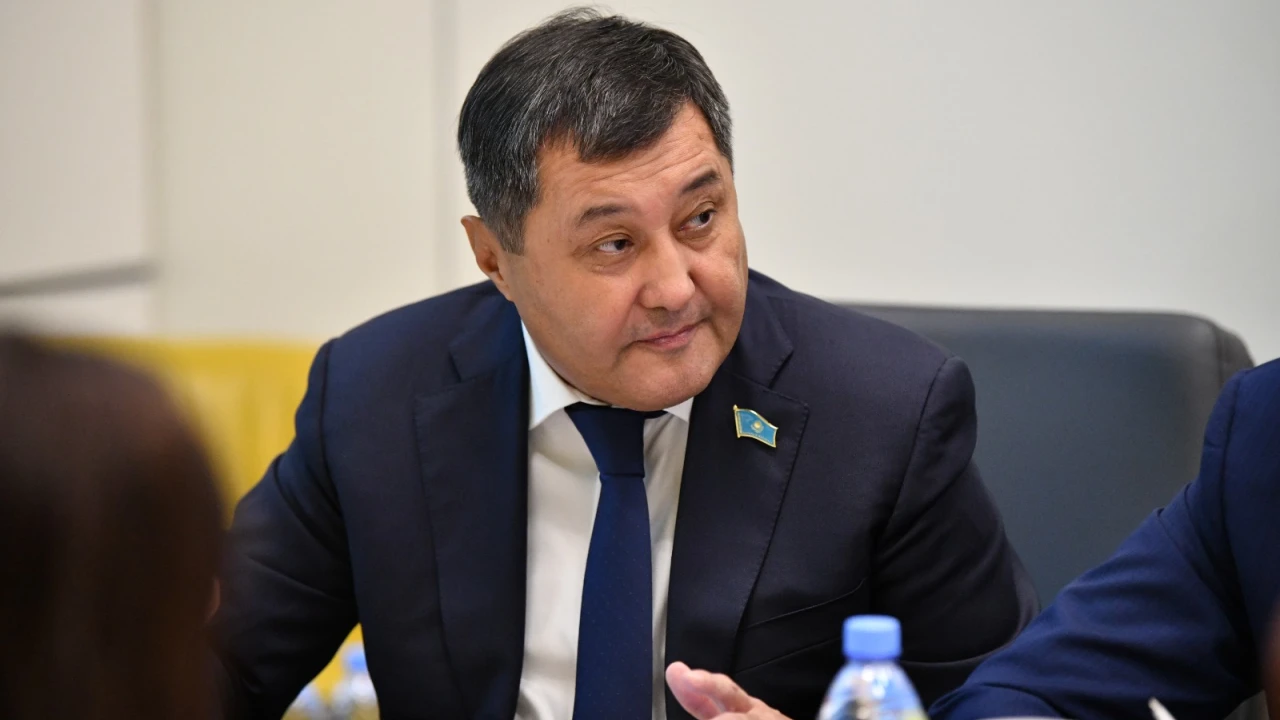
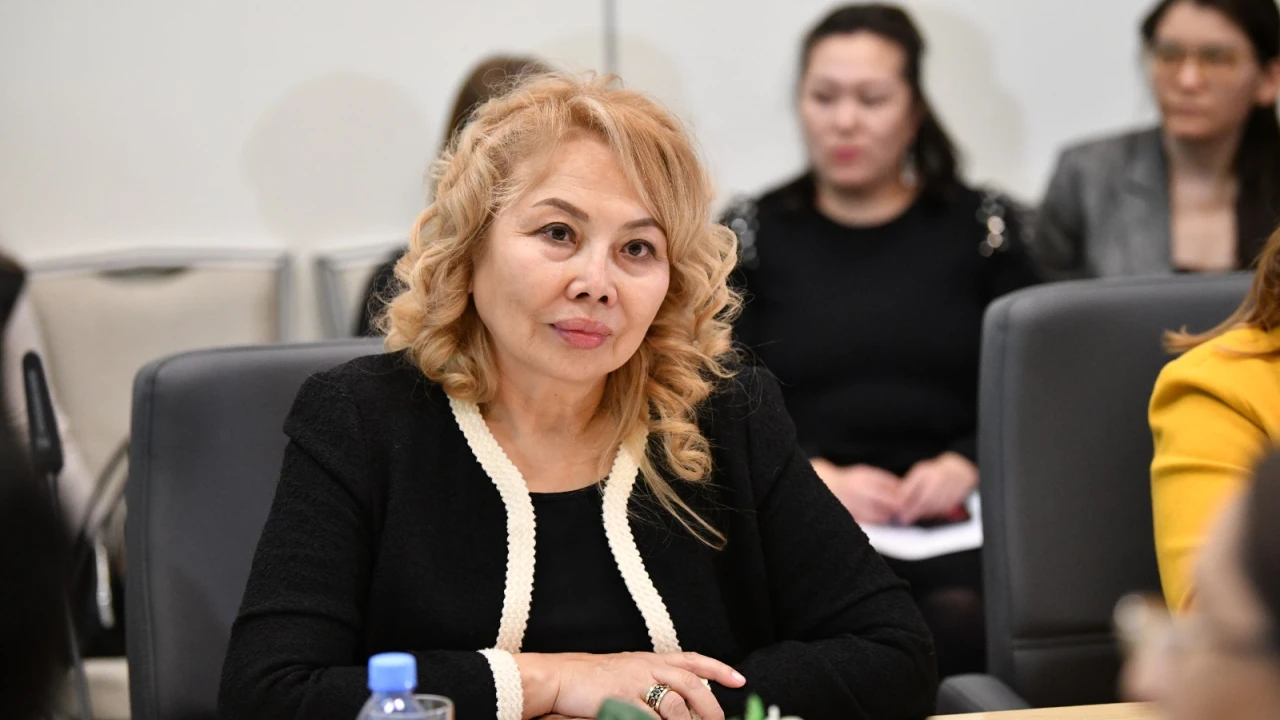
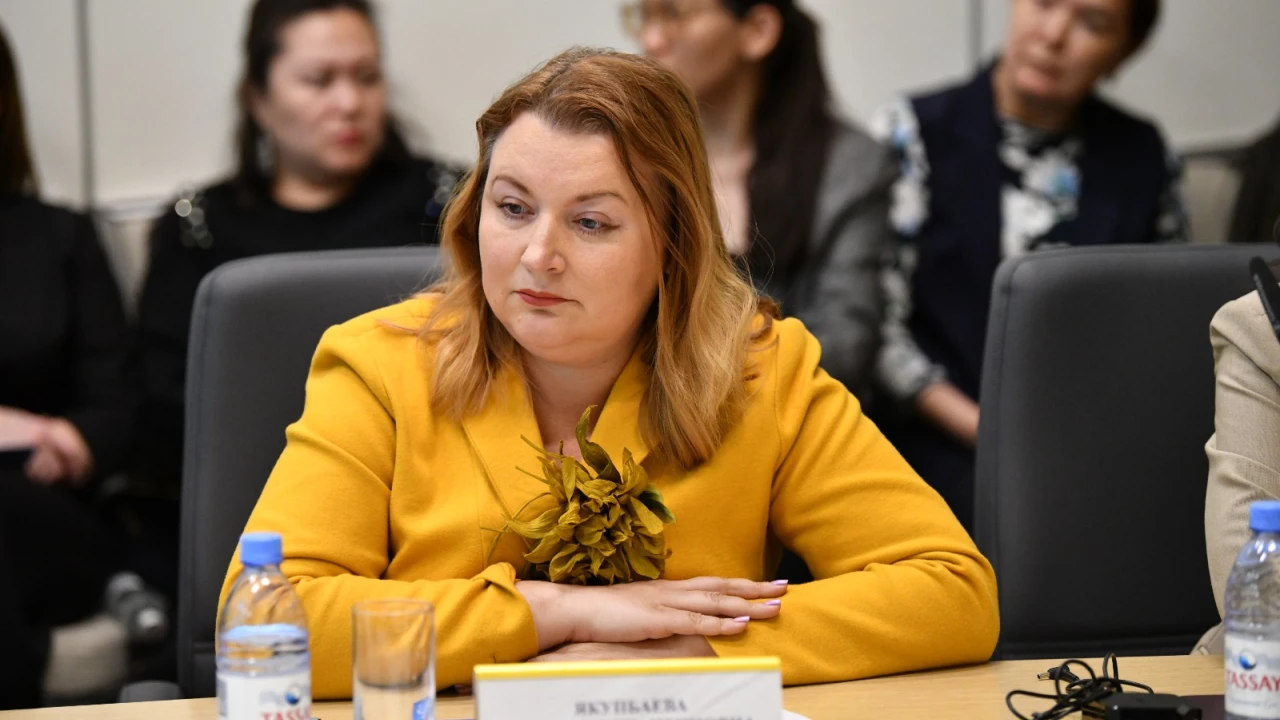
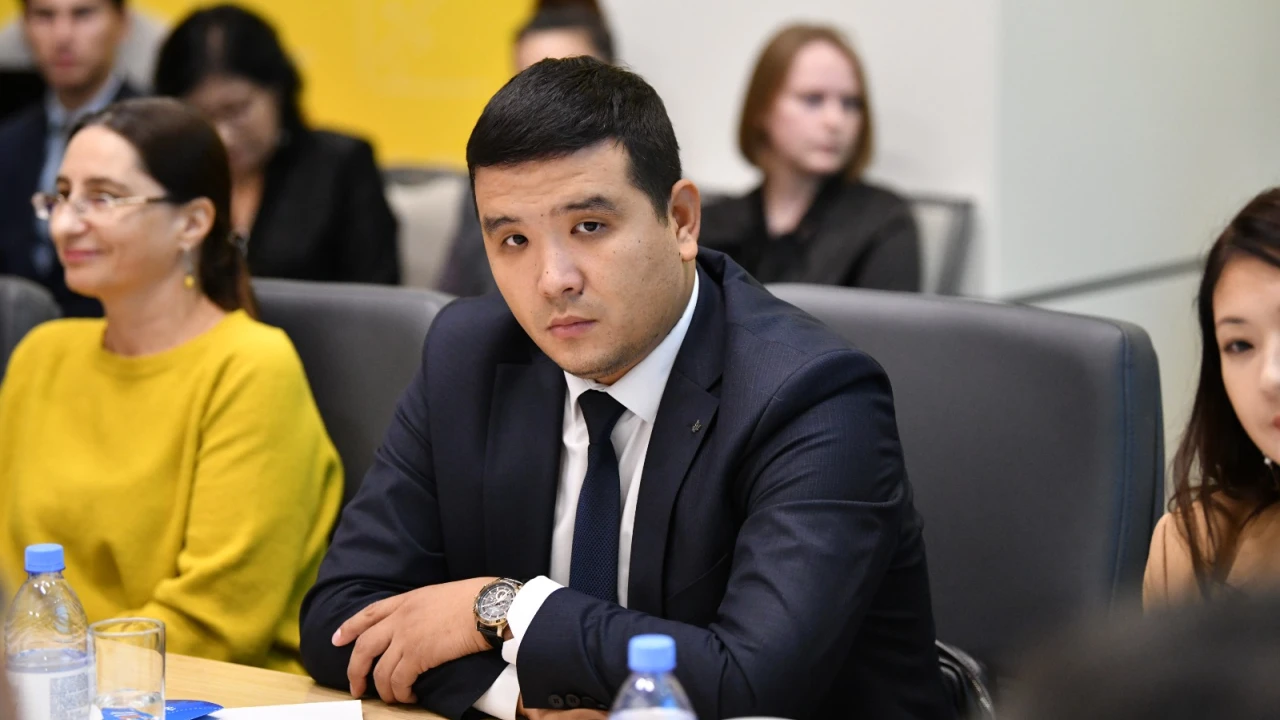
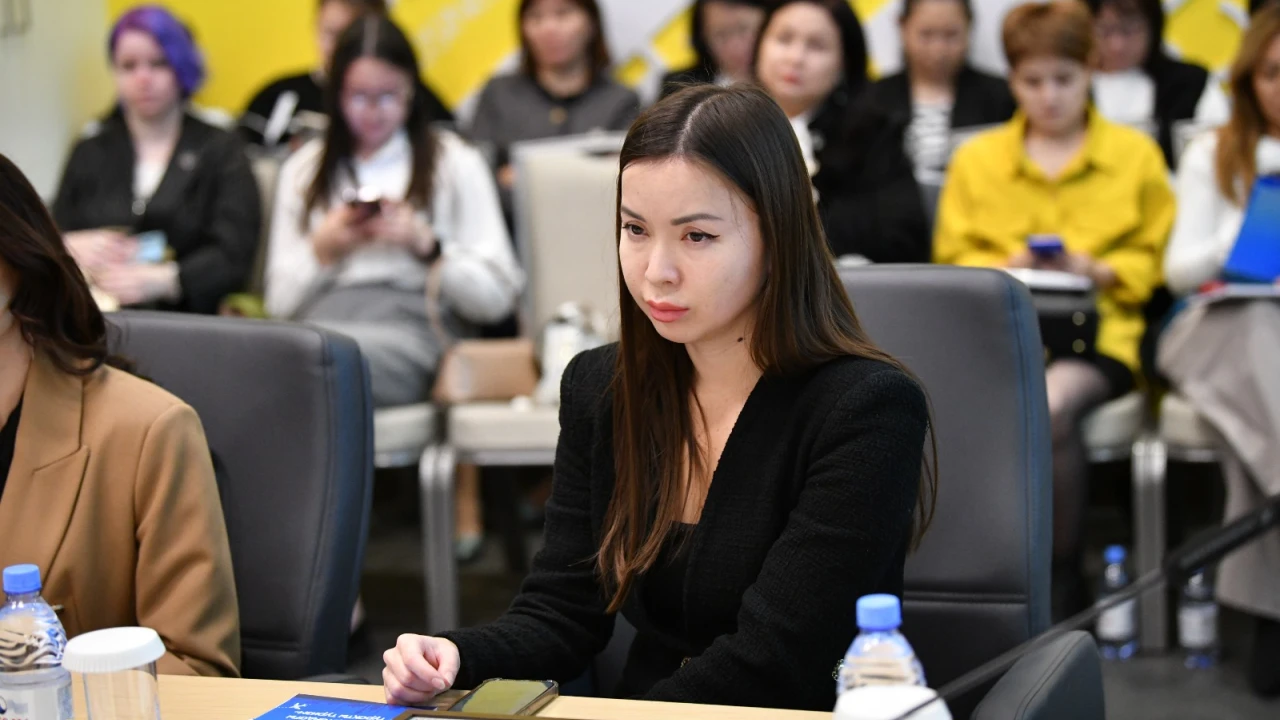
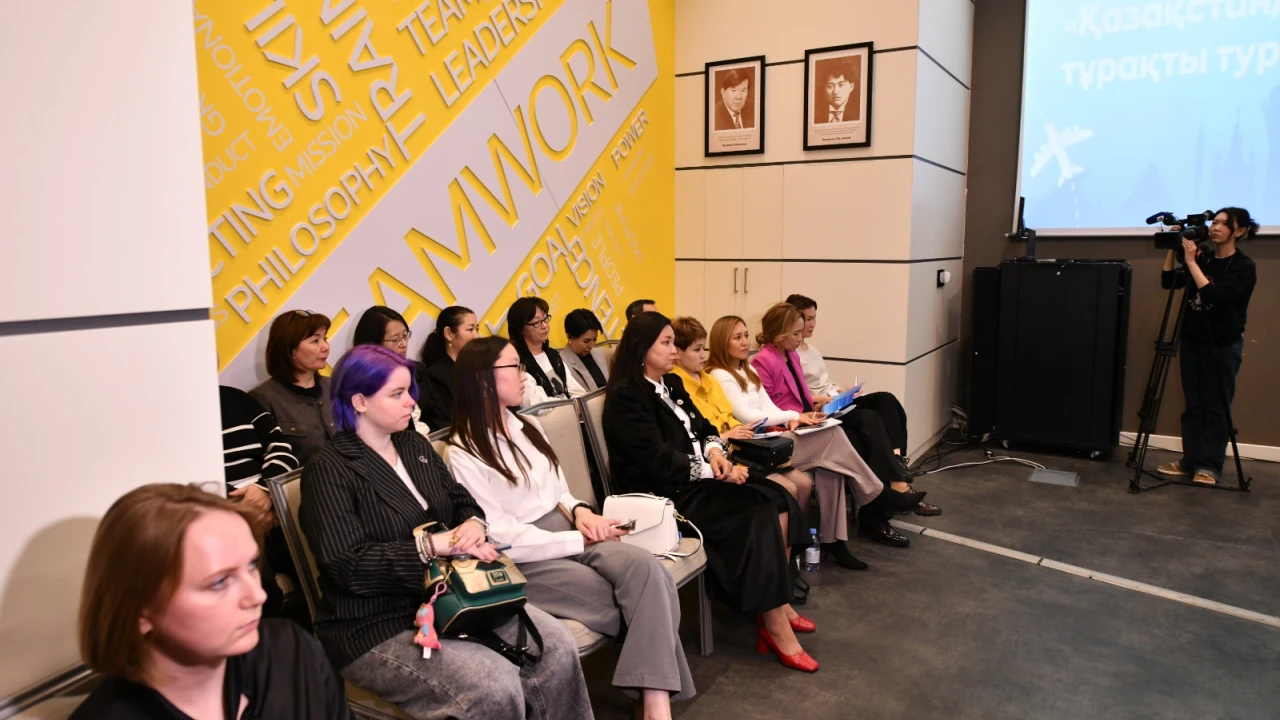
As part of the celebration of World Tourism Day, a Fishbowl discussion "Sustainable Tourism in Kazakhstan" was held at the Presidential Center of the Department of Presidential Affairs of the Republic of Kazakhstan.
The event was organized by the Presidential Center of the Republic of Kazakhstan, the Eurasian Tourism Association, the Center for the Development of Urban Tourism (Astana), with the support of the Atameken National Chamber of Entrepreneurs.
The Fishbowl discussion was aimed at promoting the principles of sustainable tourism and strengthening cooperation in this important area, taking into account the key points voiced by the President of the Republic of Kazakhstan K.K. Tokayev in his Address to the People of Kazakhstan dated September 2, 2024. The head of state emphasized the importance of modernizing the infrastructure at the country's main tourist sites, maintaining the ecological balance in the implementation of tourism projects and preventing damage to nature.
Today's meeting provides a unique platform for discussing current challenges and prospects for the development of sustainable tourism in Kazakhstan and is of particular relevance in light of the signing of the Memorandum of Cooperation between the Department of Presidential Affairs of the Republic of Kazakhstan and the United Nations World Tourism Organization, aimed at modernizing the republic's tourism sector.
In his welcoming speech, the director of the Presidential Center of Kazakhstan, Bakyzhan Temirbolat, noted that tourism is one of the dynamically growing sectors of the world economy, with its growth rate nearly double that of many other industries. "In his Address to the People of Kazakhstan on September 2, 2024, the Head of State emphasized the strategic importance of developing the country’s tourism potential, particularly highlighting that tourism development must go hand in hand with environmental protection and preserving our cultural heritage. Practically, this has manifested in the fact that investments in the tourism sector have doubled this year compared to the same period last year, exceeding 390 billion tenge. Currently, the Ministry of Tourism and Sports of the Republic of Kazakhstan is implementing 61 infrastructure projects with a total cost of about 400 billion tenge," said B. Temirbolat.
Julia Yakupbaeva, Chairperson of the Tourism Industry Committee of the Atameken National Chamber of Entrepreneurs, emphasized in her speech that key areas of tourism for Kazakhstan are eco-tourism and cultural tourism, as our country has unique natural areas and a rich cultural and historical base that attract tourists.
"Sustainable tourism is a strategic way of development for Kazakhstan, which allows a harmonious combination of economic growth, environmental protection and the development of socio-cultural ties. Kazakhstan will become a pioneer in the area and draw interest from foreign travellers and investors by adopting sustainable tourism concepts", shared her opinion Y. Yakupbayeva.
In turn, Aigerim Yesenaliyeva, President of the Urban Tourism Development Center, spoke about the development of international tourism and its contribution to national economies and employment for broad segments of the population, as well as tools for attracting investments to the domestic tourism sector.
In her presentation, Rysty Karabaeva, President of the Eurasian Tourism Association, touched on the development of urban tourism in Kazakhstan, based on research by the World Tourism Organization, the World Travel and Tourism Council, Euromonitor International and other major international organizations.
"At the VI Global Summit on Urban Tourism, it was noted that residents are the guests of the city, while tourists are temporary residents. Today, there is an urgent need to modernize cities as a whole for the development of urban tourism, which is closely linked to the concept of 'Smart Cities' that addresses the challenges of urbanization. Many destinations already implement smart city technologies that impact the tourism industry," concluded Karabaeva.
The event was attended by about 60 people, including deputies of the Maslikhat of Astana, experts from Kazakhstan's tourism industry, representatives of relevant government agencies, faculty members from Kazakhstani universities, and public figures.
It is worth noting that during the open discussion, the participants discussed current issues and opportunities in the field of Kazakhstani tourism, and developed recommendations aimed at improving the domestic tourism infrastructure, attracting investment, preserving the natural and cultural heritage of the country, creating favorable conditions for tourists in the republic using effective tools of advanced digital technologies.
Reference: Tourism is not only the largest, but also the fastest growing sector of the global economy, where tourism development is almost 2 times higher than the growth rate of other sectors of the economy. In terms of key indicators, including the effectiveness of investment, tourism is comparable to the oil industry.
In order to accelerate the development of tourism, in 2019, the Government of the Republic of Kazakhstan adopted the State Program for the Development of the Tourism Industry for 2019-2025.
The tourism sector is becoming attractive for investment. The Ministry of Tourism and Sports of the Republic of Kazakhstan, together with JSC NC Kazakh Tourism, have defined the conditions for increasing the investment attractiveness of the tourism industry.
According to JSC NC Kazakh Tourism, within the framework of the State Program, master plans for the TOP-10 regions of Kazakhstan have been developed, which provide for the comprehensive development of the country's key 10 tourist destinations, including the city of Astana, the Caspian Sea coast, Lakes Alakol, Balkhash, Shchuchinsk-Borovskoye, Bayanaul, Imantau-Shalkar resort areas, the Almaty mountain cluster and the Baikonur cosmodrome.
Currently, the following measures have been identified to increase investment attractiveness in tourism: providing preferences, preferential lending, subsidizing interest rates and interest rates on loans.
Work is underway to form a database of investment projects in the industry. Today, it has already included 125 investment projects worth about 1,694.5 billion tenge, with the creation of more than 40 thousand jobs.



